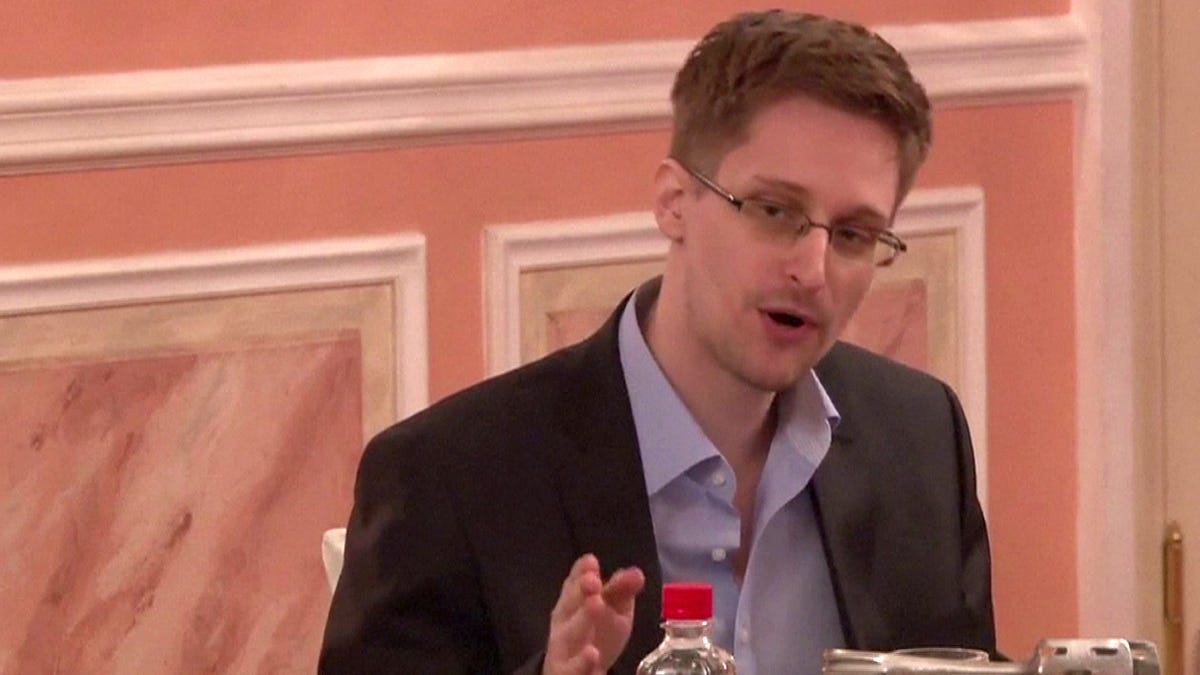Edward Snowden: Zero chance Russia, China nabbed files
In interview with New York Times, former NSA contractor Snowden says there's no way his cache of classified documents fell into hands of Russians or Chinese. He also details his motivations.

NSA leaker Edward Snowden says he didn't take top-secret agency files with him when he fled to Moscow and that he was also able to protect the documents from Chinese spies.
"There's a zero percent chance the Russians or Chinese have received any documents," Snowden said in an interview with The New York Times' James Risen, published Thursday.
Snowden is currently wanted by the US government under the Espionage Act for passing classified National Security Agency documents to journalists this past June. The leak touched off the current back-and-forth about the NSA's far-reaching, and seemingly unregulated, domestic and foreign surveillance programs.
Hailed by some as a heroic whistle-blower, Snowden also has been attacked as a traitor, or perhaps at best a misguided and reckless idealist. And some have cited his flight to Hong Kong and then to Russia -- where he landed in late June and has been granted temporary asylum -- as evidence of his traitorous leanings or carelessness.
New Yorker staff writer Jeffrey Toobin, for instance, raised the issue in a blog post for the magazine.
"As part of Snowden's flight from American justice, he went to two of the most repressive and technologically sophisticated countries on Earth. (Hong Kong is, of course, part of China)," Toobin wrote, continuing later with: "An American citizen walks into their countries bearing the keys to our most secret programs, and both -- both! -- China and Russia decline to take even a peek. That is a preposterous proposition."
In the interview with Risen, however, Snowden claims he was uniquely qualified to foil any attempts by China to access his cache of documents. As an NSA contractor, he says, he was well-versed in Chinese cyberspying programs and even taught a course on Chinese cybercounterintelligence.
As for Russia, Snowden said he gave his entire cache of classified materials to journalists before he left Hong Kong -- and kept no copies for himself -- "because it wouldn't serve the public interest" for him to hang onto the files. He told Risen that he gave the documents to journalists and excluded himself from the editorial process because he wanted his own bias "divorced from the decision-making of publication."
In the interview, Snowden also refutes an earlier Times report that said the CIA had suspected him of trying to access classified files while he was an employee there.
A note that was placed in his personnel file was actually a reprisal by a higher-up whose judgment he'd questioned, Snowden said. And in fact, he said, that experience helped convince him, upon discovering secret documents about the NSA's warrantless collection of Americans' phone data, that a leak was the only real way to make the agency's programs known. If he'd tried another route, his efforts "would have been buried forever" and he would "have been discredited and ruined."
Snowden also details his motivation for taking the documents public: "If the highest officials in government can break the law without fearing punishment or even any repercussions at all," he said, "secret powers become tremendously dangerous."
Snowden had more or less vanished until recently, when he resurfaced to accept a whistle-blower award in Moscow from several former members of the US intelligence and law enforcement community. In his interview with Risen, he says he's free to roam and is not being controlled by the Russian government. You can read Risen's full report on the interview here.

